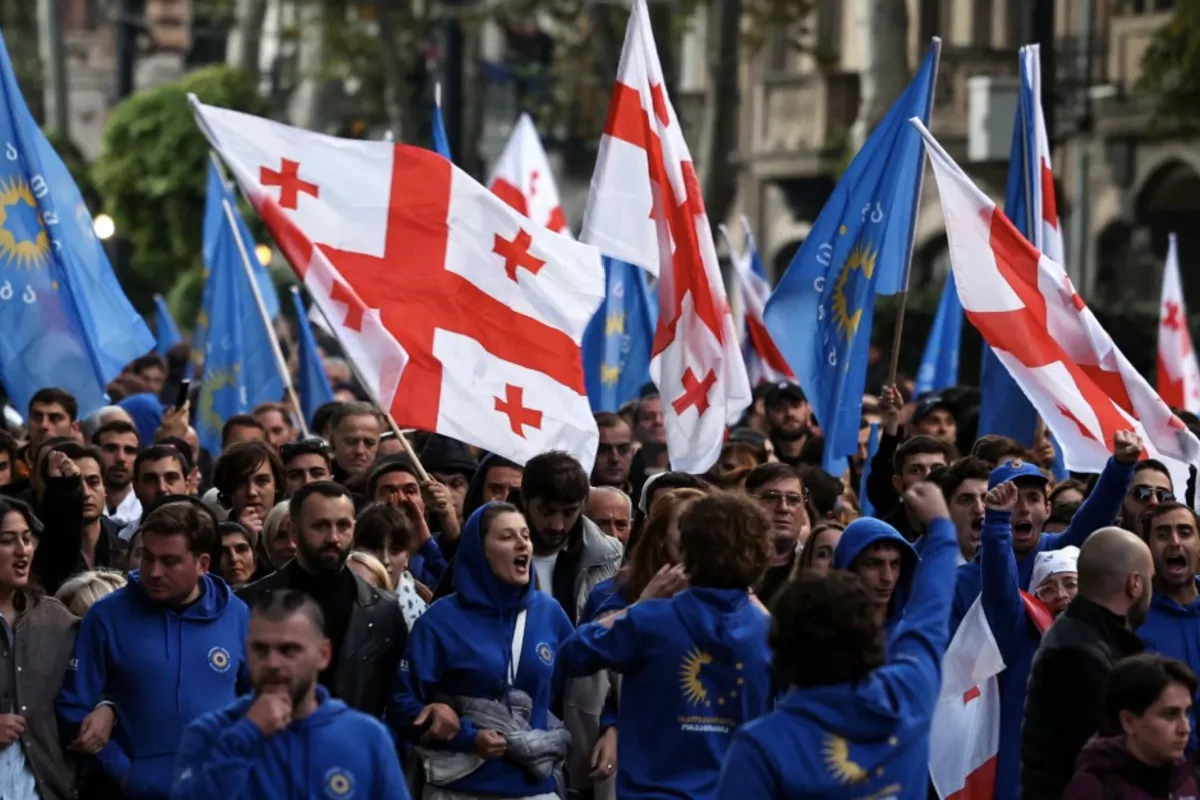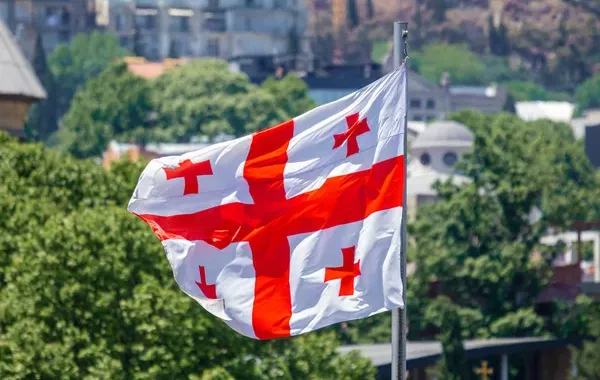
Giorgi Arjevanidze/Getty Images
The date November 28 was chosen, because on that day last year, Prime Minister Irakli Kobakhidze announced that Georgia would not seek to open membership talks with the European Union until 2028. That announcement triggered a wave of protest, that has continued until today but lost much of its energy. Many of the actors behind last year’s demonstrations are hoping to rekindle the passion from a year ago and breathe new life into the protest movement, The Caspian Post reports citing foreign media.
Foremost among them, the largest opposition party United National Movement (UNM) which was previously in government, issued a call on November 14, saying the country has been dragged away from its constitutional EU path and urged supporters to gather at Tbilisi State University at 19:00, in order to march toward parliament. In a lengthy political statement the party portrays the government as serving Russian interests and accuses it of repressing political opponents and civil society. UNM leaders say that on November 28 the public will speak again.
A similar message comes from the opposition coalition For Change. Writing from Rustavi women’s prison on November 14, one of the coalition’s leaders, Elene Khoshtaria, said that despite repression, Georgia’s direction is determined by its citizens. She says November 28 should show that this year belongs to the public’s fight for freedom.
Artists and cultural workers joined the calls on November 15, saying that they too will be at the rally. They accuse the government of trying to silence them and argue that the struggle for democracy has continued without interruption since last year.
Other voices among the opposition echo the call for people to turn out but warn against political fragmentation. Nika Cherkezishvili from Lelo said on November 14 that the ruling party aims to eliminate political pluralism, and that protests must be national and inclusive rather than controlled by any one political group.
Some political figures argue that the next phase of resistance will depend more on broad public mobilisation than on party structures. On November 18, Akaki Bobokhidze of European Georgia said that protests largely organize themselves through civic groups and that parties should focus on international outreach. He warned that big changes are unlikely soon unless the government takes a drastic step that triggers a larger public reaction.
A sector of the opposition expects enormous turnout. On November 20, Zurab Tsetskhladze, father of an imprisoned protester, said he hopes Rustaveli Avenue will be blocked and held for an extended period. He called on citizens to fill public space while experienced protest groups take responsibility for high risk actions.
Blocking Rustaveli Avenue became the focal point of the opposition’s protests for the last month, after the Georgian Dream government ushered in tighter rules for when a political gathering is allowed to block traffic, and harsher and swifter punishment for violators, which eventually led to the opposition moving their rallies to sidewalks.
Several actors argue that the rally should can draw in more people by connecting the message to recent moves by the government. Plans announced by the ruling party to restrict the voting rights of emigrants have angered opposition groups, who say this move undermines democratic participation. On November 17, Giga Lemonjava urged emigrants and supporters to join the march on the 28th, calling the proposal an attack on democracy.
Some parties will stay away. On November 14, Giorgi Sharashidze from For Georgia said his party does not plan to join. For Georgia is the party of exiled former Prime Minister Giorgi Gakharia and the only anti-government party that currently serves in parliament. Sharashidze said he has no special expectations for the rally, recalling that the opposition and the public placed high hopes on the demonstrations of October 4, which did not produce political change.
While some voices among the opposition see the “one year” mark as a way to rally the wider population, others are not convinced. Teona Akubardia said on November 17 that the real issue is the cumulative protest movement that began last year. She argues that the government is aligned with Russia and says the scale of resistance must grow.
But political scientist Aleksandre Tvalchrelidze said he expects a large but not decisive rally, arguing that the opposition lacks strategy and is unlikely to alter its approach, Interpressnews reported.
Share on social media
